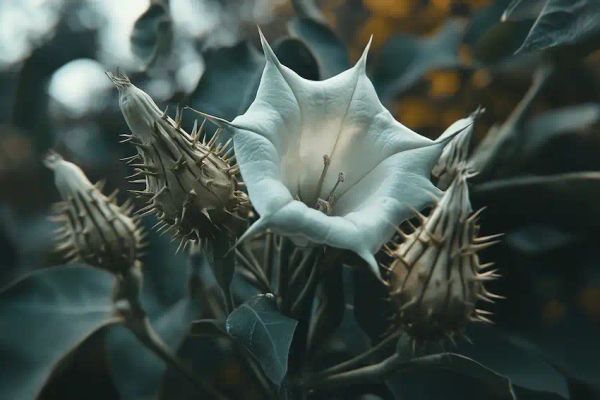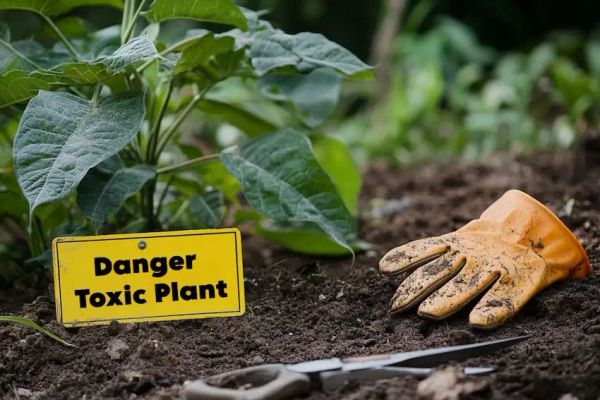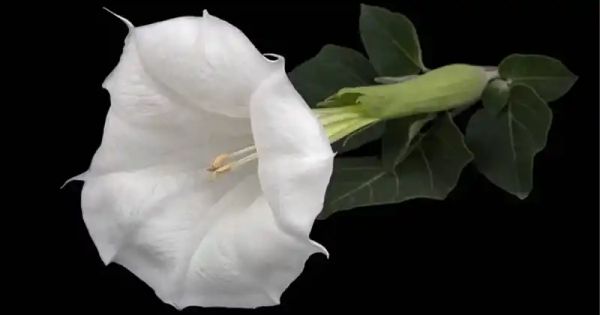The Datura genus, also known as Devil’s Trumpet or Thorn Apple, is known for its striking yet dangerous plants. These plants may look beautiful, but they are extremely toxic and can cause serious harm to both humans and animals. In this article, we will explore the Datura genus, its common species, and the dangers associated with these poisonous plants.
What Is the Datura Genus?
The Datura genus belongs to the Solanaceae family, also known as the nightshade family. These plants are native to the Americas but have spread worldwide. They mainly thrive in disturbed soils, roadsides, and gardens, where they are sometimes mistakenly cultivated for their ornamental appeal.
Identified by their large, trumpet-shaped flowers in shades of white, purple, or yellow, and spiny seed pods, all species within this genus are extremely poisonous. It is essential to learn more about their risks and how to avoid them.
Common Species of Datura
-
Datura stramonium (Jimsonweed or Thorn Apple): This species is recognized for its white or purple trumpet-shaped flowers and spiky seed pods. It is known for its hallucinogenic properties, but even a small amount can lead to severe poisoning.
-
Datura metel (Horn of Plenty): This species features large, showy flowers in white, yellow, or purple. It is cultivated for its ornamental value but is equally as toxic as other species. It is important to note that misuse can be highly dangerous.
-
Datura inoxia (Moonflower): Distinguished by its fragrant, white, night-blooming flowers, this species is often confused with the harmless Moonflower vine, causing accidental poisoning. The seeds and flowers of Datura inoxia are particularly rich in toxic alkaloids.
-
Datura ferox (Long-spined Thorn Apple): This species is identified by its larger, spiny seed pods compared to other species. It is among the most toxic species due to its high concentration of harmful alkaloids.
The Dangerous Alkaloids in Datura

All species of Datura contain potent tropane alkaloids, including atropine, scopolamine, and hyoscyamine. These substances disrupt the central nervous system, causing severe, life-threatening symptoms. Even minor exposure can lead to poisoning, highlighting the need for caution.
Symptoms of Datura Poisoning
Datura poisoning can occur through ingestion, inhalation, or skin contact. Key symptoms include hallucinations and delirium, dilated pupils and blurred vision, dry mouth and difficulty swallowing, increased heart rate and blood pressure, and seizures and coma in severe cases.
Why You Should Avoid Datura
- Extremely Toxic, Even in Small Doses: Ingesting even a few seeds or small parts of the plant can trigger severe symptoms, making accidental poisoning a significant risk.
- Unpredictable Effects: The concentration of toxic alkaloids varies across plants, making their effects unpredictable and dangerous.
- Risk to Pets and Livestock: Datura is also toxic to animals, including dogs, cats, and livestock. Ingesting these plants can be fatal to them, so it is crucial to identify and remove toxic plants from your surroundings.
Safety Tips: Protect Yourself and Others
- Avoid Touching or Handling Datura Plants: Even touching these plants can expose you to toxic compounds through your skin.
- Keep Datura Away from Children and Pets: While the colorful flowers and seed pods may be attractive, they are lethal and should be kept out of reach.
- Wear Gloves When Gardening: If you need to remove Datura plants, make sure to wear protective clothing and gloves to prevent any accidental contact.
- Educate Others: Share information about the dangers of Datura plants to help others avoid accidental exposure.
Datura plants may captivate with their beauty, but their toxicity and unpredictable effects make them highly dangerous. If you come across Datura plants, it is best to leave them untouched and spread awareness about their risks. For more information on toxic plants and how to safely remove them, check out this resource.

Disclaimer: This article is for informational purposes only and should not replace medical advice. If you suspect Datura poisoning, seek emergency medical help immediately.




